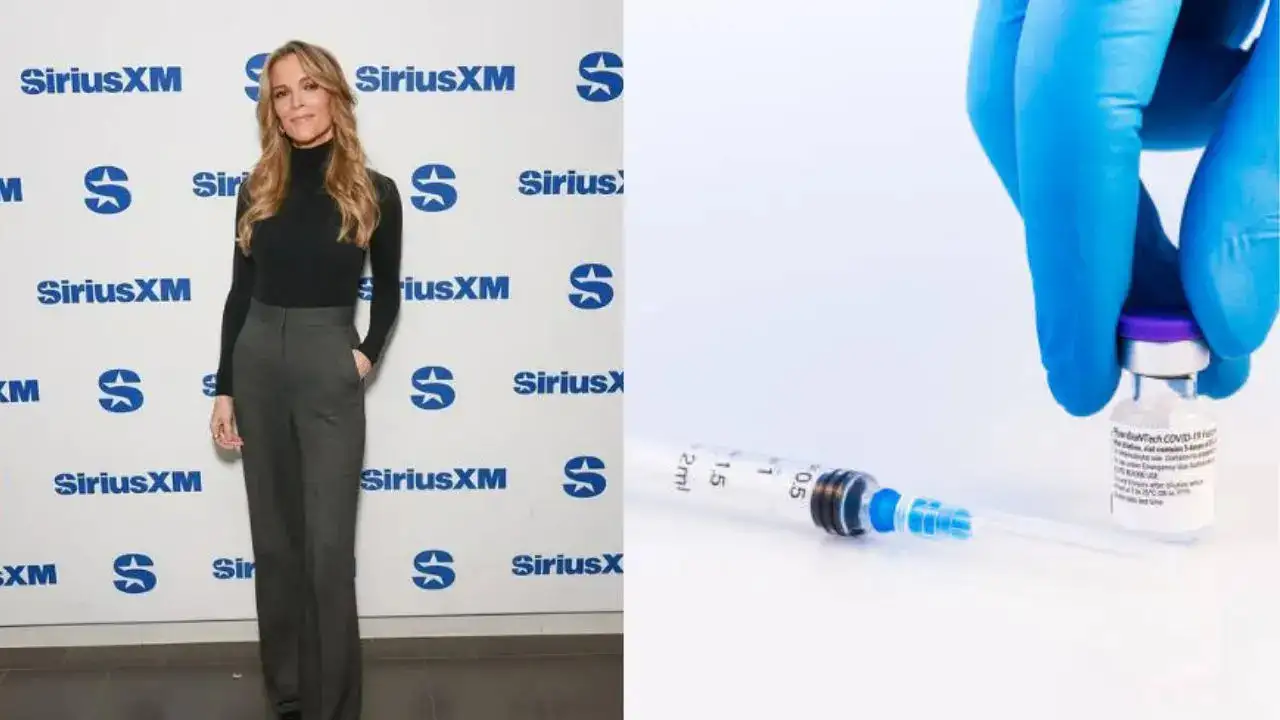
Kelly says doctors have not been able to determine what she was suffering from but it could well have been caused by the vaccine (Pic: Instagram/iStock)
Journalist and podcaster Megyn Kelly made a shocking claim that the Pfizer COVID-19 vaccination caused her an autoimmune disorder. In her podcast, The Megyn Kelly, the 54-year-old spoke with Dr. Aseem Malhotra and shared her COVID-19 vaccine experience. "I wish I hadn't done it, but I did," she said.
According to Kelly, doctors have not been able to determine exactly what she was suffering from, but she said that they told her it could well have been caused by the vaccine and the booster dose she took during the spread of the Omicron variant.
“I asked the rheumatologist if it could be linked to the Pfizer vaccine and booster, and she said, ‘Yes, and you’re not the only patient I have who’s had this sequence of events.”
Kelly's comments came days after a group of Yale researchers approved long-held claims by people who believed they developed chronic illnesses months or years after receiving vaccinations. The study dubbed the condition post-vaccination syndrome and found that those who suffer from it have different levels of white blood cells and lower levels of naturally occurring antibodies that fight the virus.
However, scientists have said that their findings are still in very early stages and that such negative side effects were found only in a “very small percentage” of people who received the vaccine. The Centres for Disease Control and Prevention still strongly backs vaccines for COVID-19 and other viruses, insisting that the shots went through the most rigorous safety screenings in US history.
What is post-vaccination syndrome?
This little-understood yet persistent condition - referred to as post-vaccination syndrome or PVS—remains unrecognised by medical authorities, and little is known about its biological underpinnings.
According to experts, to find out about the condition, scientists examined blood samples from 42 participants who experienced symptoms of post-vaccination syndrome and 22 who did not. Those with PVS had lower levels of two types of white blood cells. Apart from that, those with PVS who had never contracted COVID-19 also had lower levels of antibodies against the virus.
When the researchers measured levels of SARS-CoV-2 spike protein — the part of the virus that enables it to penetrate and infect host cells and what COVID-19 vaccines use to trigger immune responses against the virus — they found that some individuals with PVS, even those without evidence for infection, had higher levels of spike protein than controls.
Signs and symptoms of post-vaccination syndrome
A few signs and symptoms of PVS include:
- Excessive fatigue and tiredness
- Exercise intolerance
-
Brain fog and cognitive decline
-
Insomnia and sleeplessness
- Dizziness and nausea
Most of these symptoms develop shortly after vaccination - within a day or two—and can become more severe in the days that follow and persist over time. More studies are needed to understand the prevalence of PVS.
However, scientists also believe that the study is still in its early stages and the findings need to be validated. “But this is giving us some hope that there may be something that we can use for diagnosis and treatment of PVS down the road,” said Dr. Akiko Iwasaki, a professor of immunology at Yale School of Medicine and co-senior author of the study.
Get Latest News Live on Times Now along with Breaking News and Top Headlines from Health and around the world.
